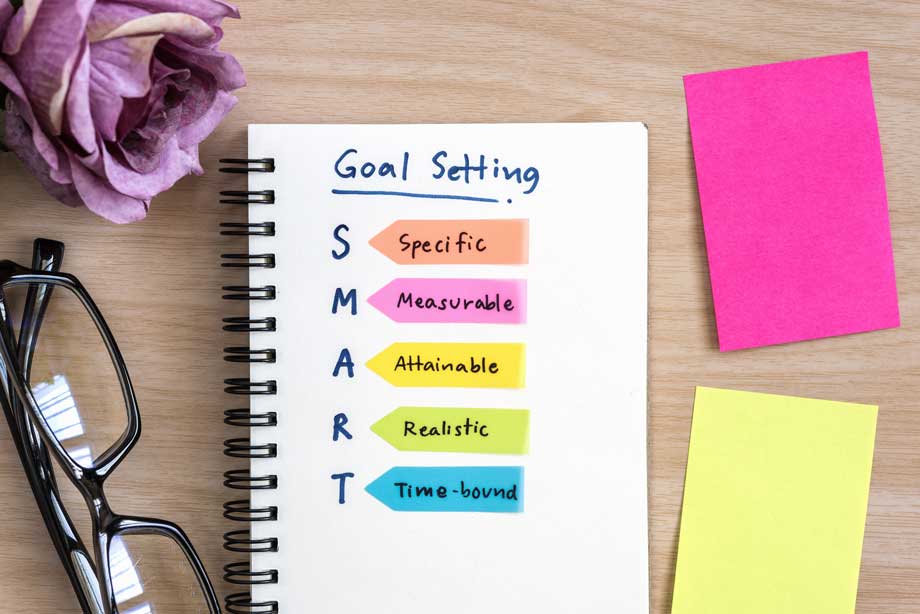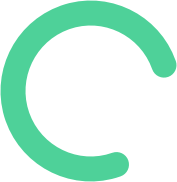Personal and professional development are two of the most important aspects of life that often go hand-in-hand. Whether you’re a student, an entrepreneur, or simply just looking to improve your personal well-being, personal and professional development can help you become more successful both personally and professionally. From honing communication skills to learning new techniques for problem-solving and decision-making, personal and professional growth is key to living a fulfilled life. In this blog post, we'll explore eight tips on how personal and professional development can benefit your life. So let's get started!
1. Set specific, measurable, achievable, relevant, and time-bound (S.M.A.R.T.) goals for your career and personal life.
How do I set S.M.A.R.T. goals?
Setting S.M.A.R.T. goals is an important part of personal and professional development, as it ensures that you stay focused on tangible objectives and create a plan for achieving your desired outcomes. SMART stands for Specific, Measurable, Achievable, Relevant, and Time-Bound. To put it simply, your goal should have a clear focus, include measurable outcomes, be achievable within a reasonable amount of time, be relevant to your current situation, and have a timeline for completion.

2. Identify your strengths and areas for improvement, and seek opportunities to develop new skills.
How do I identify my strengths and weaknesses?
One of the most effective ways to identify your strengths and weaknesses is to reflect on past experiences. Through reflection, you can gain insight into the skill set and attributes that you possess, as well as those areas where you may need more development or improvement. When reflecting on past experiences, it’s important to be honest with yourself about what you’re good at and the areas where you can improve.
3. Take advantage of learning and development opportunities, such as attending workshops, taking online courses, or earning certifications.
How will learning improve my personal and professional development?
Learning can greatly improve personal and professional development by providing a range of skills, knowledge, and abilities that can be applied to personal and career growth. Learning helps to enhance personal capability and competence, build confidence and self-esteem, increase personal effectiveness in the workplace, develop problem-solving skills, as well as facilitate personal growth, creativity and innovation.
Online learning is an ideal way to pursue personal and professional development while also managing a busy schedule. With online courses, learners can access course content anytime and anywhere, allowing them to work around their own schedules and lifestyles. Additionally, online learning has the potential to greatly influence your earnings over time.
4. Build a professional network by networking at events, joining industry organizations, and staying in touch with colleagues and mentors.
How should I build my professional network?
Building a professional network is an important step for personal and professional development. LinkedIn is one of the most popular platforms for building your professional network. LinkedIn allows you to connect with potential employers, colleagues, and mentors which can help you to develop and progress in your personal and professional life.
LinkedIn provides a platform where users can create personal profiles and share their personal and professional information. It is important to ensure that your profile reflects your personal values, skills, and experience accurately. Additionally, it is also important to maintain active participation in industry-related groups, as this will help you to stay up-to-date with the latest trends and developments in your field.
5. Seek out new challenges and responsibilities at work to expand your skills and knowledge.
How do I find these work challenges?
Finding new career challenges can be a great way to personal and professional development, as it provides an opportunity to expand your skill set, learn from different experiences, and gain confidence in yourself.
One of the best places to start is by finding out what opportunities exist in your current workplace or field. Speak with your manager or supervisor and ask about any upcoming opportunities that you can take advantage of. Additionally, you can also investigate how to volunteer or take on additional responsibilities in your current role. Taking on challenging tasks and stepping out of your comfort zone will help to expand your skills and knowledge while providing personal growth opportunities.
6. Take care of your physical and mental health by exercising, eating well, and taking breaks when needed.
Does physical and mental health help my career development?
Physical and mental wellbeing are essential for personal and professional development. When we take care of our physical and mental health, we are able to perform better, be more focused, and make better decisions that can lead to success in the workplace. Studies have shown that physical activity can improve cognitive performance and help us retain more information. Additionally, proper nutrition can help to boost energy levels and mental clarity.

7. Learn from your mistakes and failures by reflecting on what went wrong and how you can do things differently in the future.
Will I develop by making career mistakes?
Making mistakes is a natural part of personal and professional development. While mistakes can be painful, they are often a necessary part of the learning process. When we reflect on our mistakes and failures, we can gain valuable insights about ourselves and our personal growth. We can use these insights to develop more effective strategies for accomplishing our goals and making them better.
8. Practice continuous learning by setting aside time for personal and professional development, and staying up-to-date on industry trends.
What is continuous learning?
Continuous learning is an ongoing personal and professional development process that involves acquiring and maintaining relevant knowledge, skills, and understanding. It is the act of continuously seeking out new learning opportunities for personal growth and career advancement. With continuous learning, individuals can stay up-to-date with the latest trends in their field, discover new areas of personal and professional growth, and gain the necessary knowledge and skills to succeed in their careers.
9. Develop strong communication skills by being clear, concise, and respectful in your interactions with others.
How important are communication skills in career development?
Communication skills are essential for personal and professional development, as they help ensure that information is accurately exchanged between individuals. Effective communication can help to create better relationships, foster collaboration, and allow for more productive conversations.
Strong communication skills enable you to effectively express yourself in both written and spoken form. They also help you to recognize the feelings of others and use appropriate language to respond. Developing these skills can help you communicate more effectively with colleagues, clients, managers, and others in the workplace. This can ultimately lead to personal growth and career advancement.
10. Seek out mentors or coaching to help you achieve your goals and provide guidance and support along the way.
How do I find a career mentor?
Finding a career mentor can be an important part of personal and professional development. A career mentor can provide you with knowledge, guidance, and support as you navigate your professional journey. Mentors can be found in a variety of places, such as personal networks, online communities, or industry organizations.
One of the best ways to find a mentor is to look for someone who has achieved the same personal and professional goals as you. This will ensure that the mentor has first-hand knowledge and experience in achieving these goals, which can be invaluable for your personal development. Additionally, it's important to find a mentor who will be dedicated to helping you reach your goals.
Development frameworks can offer direction
Following personal and professional development frameworks
There are numerous personal and professional development frameworks available today that can help individuals accelerate their personal and professional growth. These frameworks offer various approaches to personal and professional development, from goal-setting and personal mastery to coaching and mentoring.
One of the most popular personal and professional development frameworks is the GROW model, which stands for Goal, Reality, Options, and Way Forward. This model encourages individuals to set personal goals and identify the necessary steps to reach these goals. It also emphasizes the importance of continuous learning and developing personal skills to ensure personal growth.
GOAL
What do you want?
REALITY
Where are you now?
OPTIONS
What could you do?
WILL
What will you do?
Final Note
Personal and professional development is a lifelong process that involves continuous learning, seeking out mentors or coaches for guidance, and developing personal skills. By following these steps and utilizing personal and professional development frameworks, individuals can stay on track to achieving personal growth and career success.


